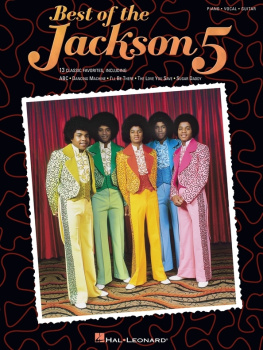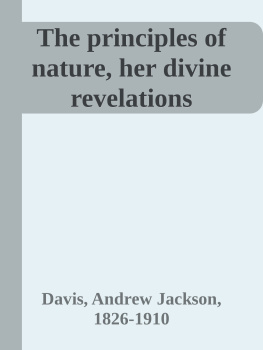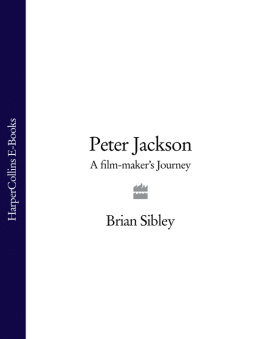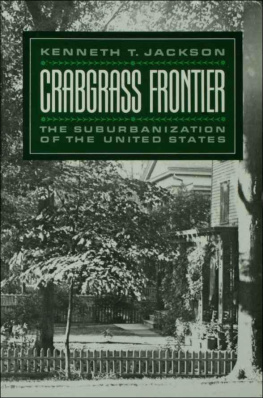BECOMING NATIVE TO THIS PLACE

Copyright 1994, 1996 by Wes Jackson
All rights reserved under International and Pan-American Copyright Conventions. No part of this book may be used or reproduced in any manner whatsoever without the written permission from the Publisher, except in the case of brief quotations embodied in critical articles and reviews.
Library of Congress Cataloging-in-Publication Data
Jackson, Wes.
Becoming native to this place / Wes Jackson.
Originally published: [Lexington, Ky.] : University Press of Kentucky, 1994.
Includes bibliographical references.
1. Environmental responsibilityUnited States.
2. Environmental policyUnited States. I. Title.
[GE195.7.J33 1996] | 96-9193 |
363.700973dc20 | CIP |
ISBN 13: 978-1-619026-88-9
Original hardcover edition published 1994 by The University Press of Kentucky
COUNTERPOINT
2560 Ninth Street, Suite 318
Berkeley, CA 94710
www.counterpointpress.com
Distributed by Publishers Group West
10 9 8 7 6
e-book ISBN 978-1-61902-688-9
For Wendell Berry
Contents

. Richard C. Edwards


T he necessity for social progresseconomic, political, cultural, technologicalhas long been such a bedrock assumption in the American ethos that challenges to it have rarely been taken seriously. True, it is admitted, there are certain costs attendant upon making progress, but these costs are seen as slight compared to the benefits. Moreover, the usual assumption is that many of the costs derive from lamentablebut in principle avoidableexcesses. If early twentieth-century miners despoiled the fragile richness of the Rockies, the fault lay not with progress (and its concomitant voracious search for industrial raw materials) but rather with an earlier generations lack of consciousness about environmental impacts.
Still, there have been other voices. Norman Ware, the most eloquent chronicler of the demise of the American craftsman under the pressure of industrialization, put it this way:
It is commonly supposed that the dissatisfaction in the [1840s] with the character and results of the Industrial Revolution was the result of purely temporary maladjustments. It is admitted that a temporary maladjustment lasting over ones working lifetime is sufficiently permanent for the one concerned. But it is claimed that, from the standpoint of history, the degradation suffered by the industrial worker in the early years of the Industrial Revolution can be discounted by his later prosperity. And this might be true from the calm standpoint of history if the losses and gains were of the same sort. But they were not. The losses of the industrial worker in the first half of the century were not comfort losses solely, but losses, as he conceived of it, of status and independence. And no comfort gains could cancel this debt. [The Industrial Worker, 1840-1860 (Boston: Houghton Mifflin, 1924), pp. x-xi.]
Wes Jackson now adds his powerful voice to this cautionary literature. For Jackson, too, the losses from unbridled and thoughtless economic growth are not simply comfort lossesmore fast food paid for by less access to parksbut rather the disruption and destruction of some of the most fundamental conditions for leading a fulfilled and meaningful life. His concern focuses on modern societys tendency to deprive us of our connections to our natural and social environment. The contrary movement, a conscious choice of will, is to become native to this place.
Richard Edwards
Dean of Arts and Sciences
The University of Kentucky


N othing more underscores the reality of the near endless web of interactions among my friends and colleagues than when the time comes to list my intellectual debts. That debt load is now huge, and the intellectual interest compounds more than semiannually. I have no choice, therefore, but to hereby declare all such debts as gifts.
The gift of deepest insight into most of the issues and proposed solutions discussed here came from my friend Wendell Berry. As a small statement of appreciation, I dedicate this book to him.
There are other friends who have been of immense importance for their intellectual contribution, their living example, or both, including: Tanya Berry, David Ehrenfeld, Terry Evans, Rick and Joyce Fent, Leland Lorenzen, Steve Marglin, Gary Nabhan, Conn Nugent, David Orr, J. Stan Rowe, Arnold Schultz, Charlie Sing, Douglas Sloan, John Todd, Charles Washburn, Don Worster, Angus Wright, and Arthur Zajonc.
Colleagues at The Land Institute Jon Piper, Peter Kulakow, and Marty Bender, one way or another before and during the preparation of this effort have helped give shape to these ideas. Eight to ten interns come through The Land Institute each year to spend forty-three weeks in reading, thinking, discussing, and doing the necessary physical work around the place. These smart, idealistic college graduates are indispensable in the energy and inspiration as well as the thinking they provide. They are at once a barometer of where the culture has gone and a source of ideas as to where it should go.
The core of the book was the 1991 Blazer Lecture at the University of Kentucky. Sam Hileman made numerous valuable improvements. Linda Okeson at The Land Institute typed various versions of the manuscript more times than the word processor can remember, and now and then would say, Do you want to say this?
The Pew Charitable Trust, through its Conservation Scholars program, provided funding that has made it possible to begin implementation of some of these ideas in a small Kansas town. By being able to enact these ideals in a real physical place, more ideas have emerged which have informed much of the content of this book.


W hen one of my great grandfathers swept into Kansas with the white tide around May 30, 1854, the first day he and the others could legally do so, the day the Kansas-Nebraska Act was signed by Franklin Pierce, our nation had fewer than 30 million people. Had national policy at that time been directed toward urging all Americans to become native to this place, the nature of our relationship to the land today would be very different from what it is. Today, too many people and the products of the technology explosion, interacting with our desires and our perceived (as well as bona fide) needs, dictate the terms of that relationship.
Next page














